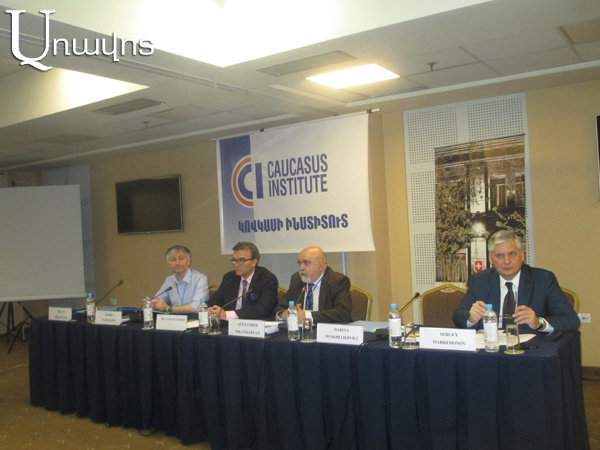Sergey Markedonov, a political scientist at the “Caucasus 2017” International Conference, associate professor of the Russian State University of Humanities, said that we cannot speak about serious changes regarding Artsakh in 2017. “We can not say that this is a frozen conflict. Frontline operations regularly followed and preceded the peaceful negotiations. Violations of the ceasefire regime accompany the negotiation process”.
He noted examples of the February events that took before the Munich summit, that after the meeting of the Foreign Ministers in Moscow, the May escalation took place. He also recalled the July events. He reminded that on October 16 when Aliyev-Serzh Sargsyan meeting took place in a constructive atmosphere, six days before and four days later ceasefire violations again took place at the contact line. “In June, the Minsk Group addressed the Azerbaijani side to refrain from violating the ceasefire, this was already a concrete message. It was directed not to the sides, but to the Azerbaijani leadership”.
Markedonov said that though Azerbaijan tried to make statements that the Armenian side was making aggressive anti-humanitarian actions, that civilians are killed, Baku did not receive support for this rhetoric in the international arena.
Markedonov said that the closure of the “All-Russian Azerbaijani Congress” caused a very strong reaction in Baku, because this congress was created by Heydar Aliyev’s initiative and it was a concrete note from the Ministry of Foreign Affairs of the Russian Federation, because Russian citizens with Armenian surnames were not allowed to enter Azerbaijan: “It was a public note where the Azerbaijani leadership was publicly accused of manifesting ethnic, racial discrimination”.
Hripsime JEBEJYAN




















































